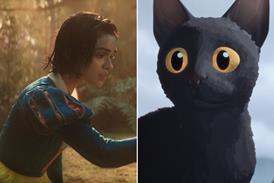Peter Gerard, director of audience development and content operations at Vimeo and inventor of Distrify, explains why.
A couple of months ago I returned from a week-long trip to Lagos in Nigeria, it was a trip awarded to me by the British Council as one of their Hospital Club 100 young creative entrepreneurs, we were to connect with our Lagos-based peers working across music and film.
I have been involved with successful online film releases by Nigerian directors like Lonzo Nzekwe and Blessing Egbe and so I wanted to find out what were the particular challenges faced by my West African counterparts.
In an era when cord-cutting is all the rage and VOD platforms are popping up faster than ever before, it may seem counter-intuitive that Nigeria’s crowded cable networks are making room for ever more channels.
But the production finance system in Nigeria has a unique model that requires skills beyond those expected by a traditional producer.
Instead of pitching a programme or series to a broadcaster in the hopes of a commission or a pre-sale, Nigerian producers need to pay the broadcaster for airtime. They then have to sell their own advertising space to cover the production budget and the cost of airtime.
This puts a lot of producers in a Catch-22 situation - without guaranteed airtime, it is difficult to get advertisers on board since they cannot guarantee a slot on the TV schedule. But without advertisers, there is no budget to buy airtime.
This cycle means that producers are increasingly seeking innovative ways to finance and sell their programmes.
Greg Odutayo, managing director of Royal Roots, is known for sitcoms like House Apart and Bella’s Place. He is also filming regular seasons of a successful brand-sponsored chef game show.
Royal Roots has in-house writers and produces a range of television dramas, sitcoms, documentaries and commercials. On top of their own productions, other producers can hire the two studio facilities and a full range of lighting, camera and grip equipment.
But the rising costs of securing airtime on TV and the uncertainty of relying on other channel’s schedules has pushed Odutayo to set up his own TV channel. With his own channel, he can guarantee slots for his productions and also sell airtime to others.
In effect, when R2TV launches later this year, Royal Roots will own its entire value chain - production, facilities, sales and distribution.
But local television has its limitations, especially when as many as 17m Nigerians are living abroad.
In recent years, Nigerian producers have been at the forefront of digital distribution, releasing their films and series internationally via the internet. My interest in Nigeria stemmed from the fact that the social ecommerce tools I built are being widely used as an online distribution platform there.
Lonzo Nzekwe, Uche Jombo and Blessing Egbe are among a new wave of Nigerian filmmakers who are working directly with fans and bloggers to promote digital rentals and downloads of their films via platforms like Vimeo on Demand (which just started selling Half of a Yellow Sun in North America).
(Half of a Yellow Sun has recently been passed for theatrical release in Nigeria.)
Lonzo Nzekwe was also one of the first Nigerian filmmakers to go direct to iTunes to release his film Anchor Baby - a drama about Nigerian immigrants in the US.
Online, these filmmakers are effectively creating their own networks, encouraging Nigerians at home and abroad to take to blogs, Twitter and other social networks to spread the word about their films.
These channels are proving highly effective, thanks to the rapid spread of mobile broadband in Nigeria and a desire for Nigerians abroad to stay up-to-date on the Nollywood scene back home. Nollywood by Mindspace, for example, has more than half a million followers across Facebook and Twitter.
Taking advantage of the connected nature of Nollywood film fans, entrpreneurs in Nigeria and from abroad have launched online SVOD platforms focussed on the Nigerian and African markets, including Iroko and Buni-TV. Like NetFlix, they are paying license fees to attract the most popular films.
This changing media landscape in Nigeria is thriving thanks to a willingness to take risks and pioneer new distribution avenues. Producers benefit by finding new sources of revenue and consumers win by getting access to their favourite films and shows on whichever screen they choose. Valuable lessons for us all.
Peter Gerard is director of audience development and content operations at Vimeo and inventor of Distrify
























No comments yet